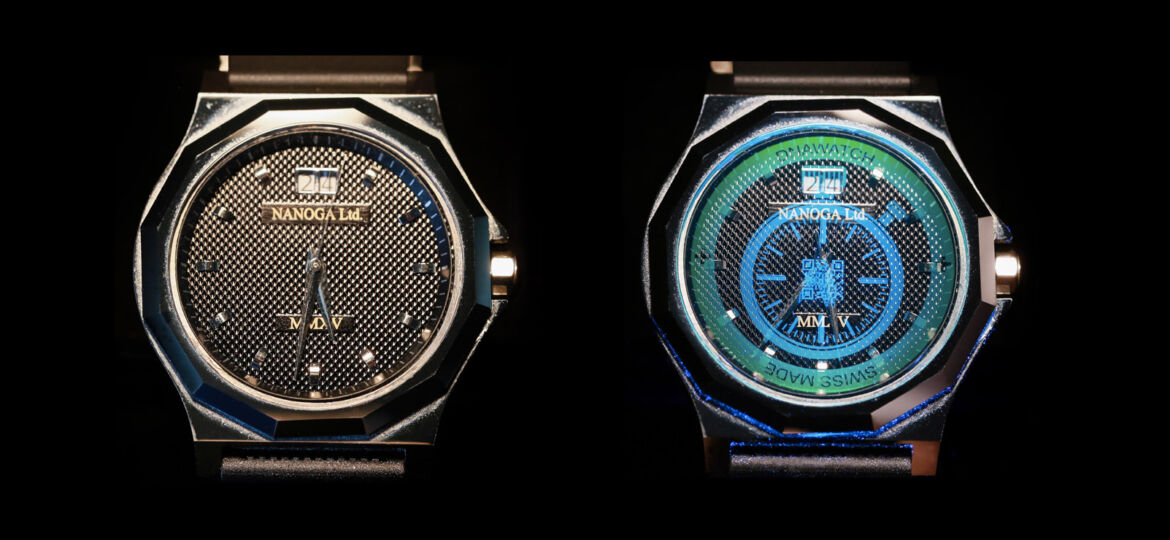
New nanotechnology aims to put a dent in the $745 billion counterfeit goods market
Researchers at Ecole Polytechnique Fédérale de Lausanne (EPFL) in Switzerland have developed a technique for embedding nanoscale photonic crystals into the glass face of a watch so that when it is exposed to UV light, the design made by the crystals becomes visible. The team at Nanoga, a new startup that has been spun off to market this research, believes that this technology can be used to offer luxury watch makers an anti-counterfeiting method that is quick and easy to adopt.
Nanoga’s CEO, Nasser Hefyene, approached EPFL over two years ago to see if the lab could produce an anti-counterfeiting technology that didn’t require the use of any high-tech device and wouldn’t detract from the appearance of the watch. “The aim was to combine tried-and-tested technologies in order to design a new security system that cannot be reproduced,” said Hefyene in a press release. In the video below, Hefyene describes the technology, and and images indicating how watches are watermarked are shown.
In a machine that is typically used for fabricating LEDs, a very thin layer of photonic crystals, which converts the UV light into colors, is deposited on the glass surface as a vapour. Then, through lithographic printing, specific parts of the photonic crystal layer are activated so that they react when exposed to UV light. In order for different colours to appear under the UV light, the photonic crystals are given different geometries and are oriented in different directions with respect to the glass.
This work represents the latest development in at least a decade-long history of nanotechnology being used in anti-counterfeiting and brand protection. This blog covered the related efforts of a small startup, called SingularID, years ago; it was purchased by Bilcare Research nearly a decade ago. Bilcare has taken the technology, which is essentially a nanoscale magnetic material that acts as a sort of “fingerprint” for each product, and built a healthy business around it. The entire solution involves a special device to read the nanoparticles and the software that runs it.
The solution developed by EPFL and being commercialised by Nanoga offers a much simpler approach that requires only a UV light. For the moment, the solution looks to be restricted to products that have a glass surface. However, given the amount of luxury watch counterfeiting that occurs, this probably represents a fairly sizeable market that needs protecting.














